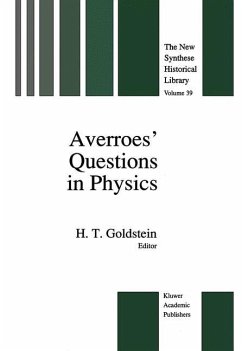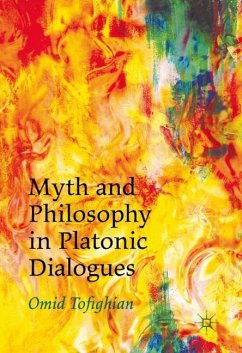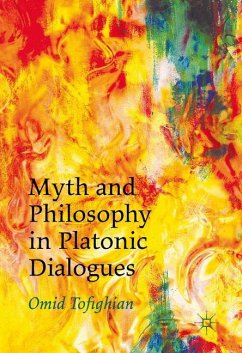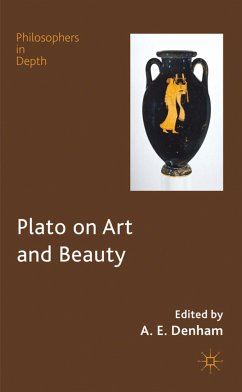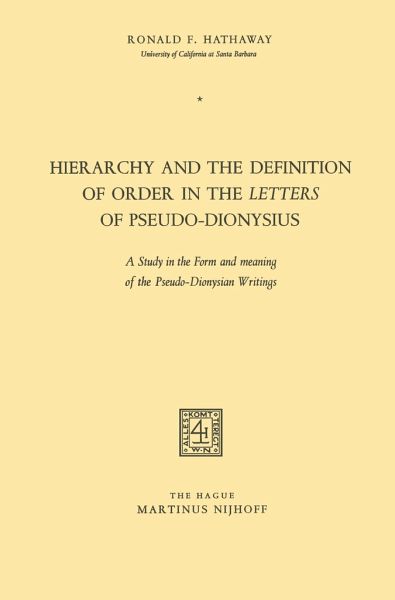
Hierarchy and the Definition of Order in the Letters of Pseudo-Dionysius
A Study in the Form and meaning of the Pseudo-Dionysian Writings
Herausgegeben: Pseudo-Dionysius

PAYBACK Punkte
42 °P sammeln!
N eoplatonism begins explicitly with Plotinus in the third century of our era. The later Neoplatonism of the fifth and six century schools at Athens and Alexandria was both the continuation of the philosophy of Plotinus and also a pagan ideology. When these schools were closed, despite attempts at compromise at Alexandria and as a result of direct and indirect political pressures and actions, pagan ideology died. Many philosophers, such as Isidore, Asclepiodotus, Damascius, and Olym piodorus, must have foreseen the danger to philosophy, and their extant writings are sprinkled with forebodings....
N eoplatonism begins explicitly with Plotinus in the third century of our era. The later Neoplatonism of the fifth and six century schools at Athens and Alexandria was both the continuation of the philosophy of Plotinus and also a pagan ideology. When these schools were closed, despite attempts at compromise at Alexandria and as a result of direct and indirect political pressures and actions, pagan ideology died. Many philosophers, such as Isidore, Asclepiodotus, Damascius, and Olym piodorus, must have foreseen the danger to philosophy, and their extant writings are sprinkled with forebodings. Would the death of pagan ideology, in the form of pagan worship and the Homeric and Orphic traditions, bring about the death of all genuine philosophy as well? One answer to this great question is found in the enigmatic writings of Ps. -Dionysius the Areopagite. Purposing to be the writings of the Athenian convert of St. Paul, they fall within the province of a multitude of so-called "pseudepigraphic" Christian writings. 1. GENERAL ARGUMENT I embarked on the study of Ps. -Dionysius' Letters with two goals in mind: (r) to grasp in clear detail the unknown author's philosophic intentions in writing his famous Corpus and the way in which he set about writing, and (2) to attempt to see with precision the reason for the absence of a political philosophy in Christian Platonism. The Letters provided a richness of detail and information bearing on the first subject which was wholly unexpected.









